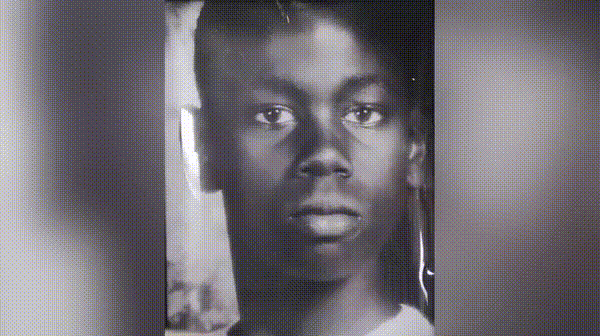
Tire Nichols (Courtesy Ben Crump and Nichols family)
Nearly three weeks ago, Tire Nichols, a 29-year-old black man, was hospitalized after a traffic stop in Memphis that resulted in a violent arrest and subsequent death of a driver.
Here’s what we know about the timeline of the incident, the investigations by authorities, and the reaction of Nichols’ family:
January 7th: At approximately 8:30 p.m. local time, officers stopped a vehicle on suspicion of reckless driving, according to a Memphis police statement.
“A confrontation ensued” between officers and the driver of the vehicle, later identified as Nichols, who then fled on foot, according to Memphis police. Officers pulled him over and “another confrontation occurred,” resulting in Nichols’ arrest, police said.
An ambulance was called to the scene of the arrest after Nichols complained of difficulty breathing, according to police, and he was transported to a nearby hospital in critical condition.
January 10: The Tennessee Bureau of Investigation (TBI) announced that Nichols died from injuries sustained in the “use-of-force incident with officers,” according to a statement.
January 15: The officers involved were relieved of their duties, a standard departmental procedure while an investigation into the use of force is launched, Memphis police said. TBI and the Shelby County District Attorney’s Office also teamed up to investigate.
Preliminary findings indicated the seriousness of the officers’ conduct during the operation, police said.
“Today, the department is notifying involved officers of impending administrative actions,” Chief Davis said in a statement.
January 18: The Justice Department reported that a civil rights investigation was opened following Nichols’ death. Kevin G. Ritz, US Attorney for the Western District of Tennessee declined to provide further details.
January 20: After their internal investigation, Memphis police identified and fired five officers (Tadarrius Bean, Demetrius Haley, Emmitt Martin, Desmond Mills, Jr., and Justin Smith) involved in the police operation due to their violation of the policies of various departments. .
Attorneys for the Nichols family, Ben Crump and Antonio Romanucci, called the firing of the five officers “the first step in achieving justice for Tire and his family.”
Two Memphis Fire Department employees who were part of Nichols’ “initial patient care” were also fired, the department’s public information agent, Qwanesha Ward, told Trends Wide.
January 23: After meeting with officials to view unreleased police video of the arrest, Nichols’ stepfather said: “What I saw on the video today was horrifying. No father, mother should have to witness what I saw today.”
Lawyer Romanucci said: “He was helpless the whole time. He was a human piñata for those policemen. It was an unadulterated, brazen, non-stop beating from this young man for three minutes. That’s what we saw in that video. It wasn’t just violent, it was savage.”
Trends Wide’s Nick Valencia, Chris Boyette, Jamiel Lynch, Raja Razek, Eric Levenson, Dakin Andone, Theresa Waldrop, Steve Almasy, Sara Smart and Hannah Rabinowitz contributed to this report.

Tire Nichols (Courtesy Ben Crump and Nichols family)
Nearly three weeks ago, Tire Nichols, a 29-year-old black man, was hospitalized after a traffic stop in Memphis that resulted in a violent arrest and subsequent death of a driver.
Here’s what we know about the timeline of the incident, the investigations by authorities, and the reaction of Nichols’ family:
January 7th: At approximately 8:30 p.m. local time, officers stopped a vehicle on suspicion of reckless driving, according to a Memphis police statement.
“A confrontation ensued” between officers and the driver of the vehicle, later identified as Nichols, who then fled on foot, according to Memphis police. Officers pulled him over and “another confrontation occurred,” resulting in Nichols’ arrest, police said.
An ambulance was called to the scene of the arrest after Nichols complained of difficulty breathing, according to police, and he was transported to a nearby hospital in critical condition.
January 10: The Tennessee Bureau of Investigation (TBI) announced that Nichols died from injuries sustained in the “use-of-force incident with officers,” according to a statement.
January 15: The officers involved were relieved of their duties, a standard departmental procedure while an investigation into the use of force is launched, Memphis police said. TBI and the Shelby County District Attorney’s Office also teamed up to investigate.
Preliminary findings indicated the seriousness of the officers’ conduct during the operation, police said.
“Today, the department is notifying involved officers of impending administrative actions,” Chief Davis said in a statement.
January 18: The Justice Department reported that a civil rights investigation was opened following Nichols’ death. Kevin G. Ritz, US Attorney for the Western District of Tennessee declined to provide further details.
January 20: After their internal investigation, Memphis police identified and fired five officers (Tadarrius Bean, Demetrius Haley, Emmitt Martin, Desmond Mills, Jr., and Justin Smith) involved in the police operation due to their violation of the policies of various departments. .
Attorneys for the Nichols family, Ben Crump and Antonio Romanucci, called the firing of the five officers “the first step in achieving justice for Tire and his family.”
Two Memphis Fire Department employees who were part of Nichols’ “initial patient care” were also fired, the department’s public information agent, Qwanesha Ward, told Trends Wide.
January 23: After meeting with officials to view unreleased police video of the arrest, Nichols’ stepfather said: “What I saw on the video today was horrifying. No father, mother should have to witness what I saw today.”
Lawyer Romanucci said: “He was helpless the whole time. He was a human piñata for those policemen. It was an unadulterated, brazen, non-stop beating from this young man for three minutes. That’s what we saw in that video. It wasn’t just violent, it was savage.”
Trends Wide’s Nick Valencia, Chris Boyette, Jamiel Lynch, Raja Razek, Eric Levenson, Dakin Andone, Theresa Waldrop, Steve Almasy, Sara Smart and Hannah Rabinowitz contributed to this report.





